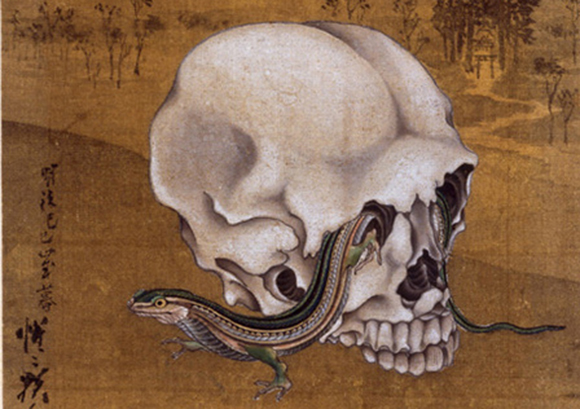
When you think of Japanese ukiyo-e, or woodblock prints, you probably think of Hokusai’s beautiful landscapes in his Thirty Six Views of Mount Fuji, or the stylized prints of beautiful courtesans in traditional Japanese dress. But there are also many pieces of Japanese art and ukiyo-e from the Edo to the Meiji period (between 1603 and 1912) that represent a more mythical and macabre side of Japan.
The following is a collection of 20 pieces that all contain skulls or skeletons in some form, many of them by renowned and famous artists of the time.
Utagawa Kuniyoshi
Soma no Furudairi (Takiyasha the Witch and the Skeleton Specter)
Kuniyoshi was renowned for his paintings of historical and mythical scenes, and this piece combines both. Dating from around 1845, this famous painting from one of the masters of Japanese woodblock prints depicts a skeleton demon summoned by Princess Takiyasha. After the death of her father, Taira no Masakado, Princess Takiyasha continued living in the ruined palace of Sōma, and legend has it that she was a practitioner of witchcraft.
Oiwa Boukon
Another work by Kuniyoshi, this depicts the skeleton behind Oiwa possessing her.
One of the caricatures Kuniyoshi excelled at features a skull design on the clothing.
They may be small, bu there are skulls to be found in amongst the horde of demons.
Katsushika Hokusai
Kohada Koheiji
Koheiji was a kabuki actor who appeared in kabuki productions of ghost stories and romances. He was killed by the man with whom his wife was having an affair, and this picture shows him peering over a mosquito net at the two adulterous lovers.
Kobayashi Kiyochika
The Hell Courtesan, Jigoku Dayu
The Jigoku Dayu, or Hell Courtesan, was a famous courtesan known for her relationship with the priest Ikkyū, and she is the subject of many macabre pieces of Japanese art. Here, she graces the centre of the piece while on the right hand side a skeleton dances with a towel tied around its head. The skeleton guests on the left applaud.
Here we have a policeman rebuking two skeletal women for their lewd display of naked bones at Tennoji Temple in Yanaka. As well as human skeletons there’s also a rather cute little dog or cat down in the right-hand corner.
Kawanabe Kyōsai
Skeletons Pulling the Sleeve of a Beauty
Notice the top hat worn by one of the skeletons.
Skeleton tea ceremony
Three skeletons enjoy a traditional Japanese tea ceremony.
The Hell Courtesan, Jigoku Dayu
In Kyosai’s rendition of the courtesan, he captures her in an aggressive movement.
Takeuchi Seihō
Color on silk image of ‘kanka’
A skeleton in a sexy pose.
Tsukioka Yoshitoshi
Hell Courtesan and Ikkyū
In Yoshitoshi’s version of the Hell Courtesan and her lover, Ikkyū spears a skull on a bamboo cane in front of her.
Enlightenment of The Hell Courtesan
Pale skeletons drift behind the beautiful courtesan.
This skull design would make a great tattoo.
Kawanabe Kyōsai
This creepy depiction of a lizard slithering through the empty eye socket of a skull remains very popular today.
Itō Jakuchū
Jakuchū rarely drew skulls, so this is an unusual piece. The stark use of black and white is striking.
Utagawa Hiroshige
This image shows Taira no Kiyomori being assailed by the vengeful ghosts of the warriors he triumphed over in the Heiji Rebellion. Look carefully and you will see that the snowy landscape is actually composed of skulls.
Unknown
Two skeletons have a picnic. This piece is thought to be from the Meiji period, around the end of the 19th century.
These skeletons appear to be having a good old traditional Japanese party, drinking tea and playing instruments.
This skeleton’s smile appears rather forced as he wanders around the woods at night with a lantern.
What do you think of these creepy works, Rocketeers? Would you like to see more, or do you prefer the typical Ukiyo-e style?
Source: Japaaan Magazine

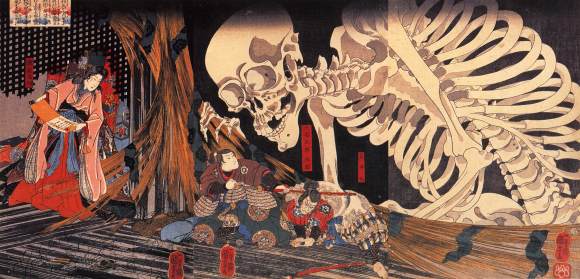
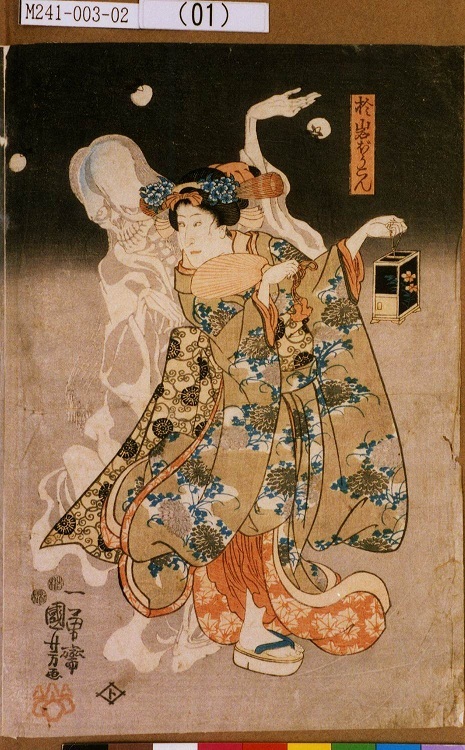
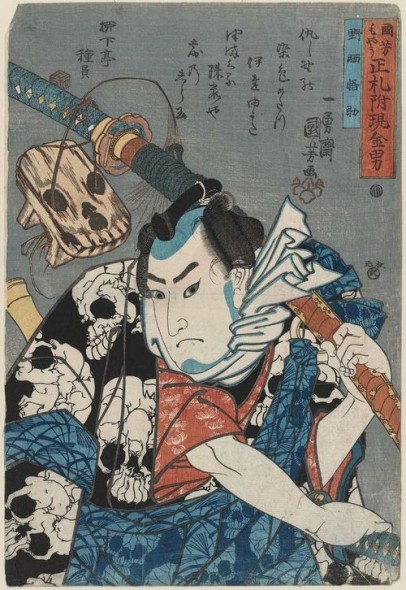
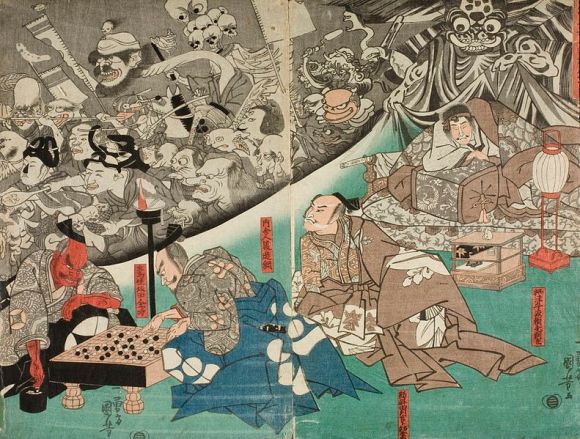

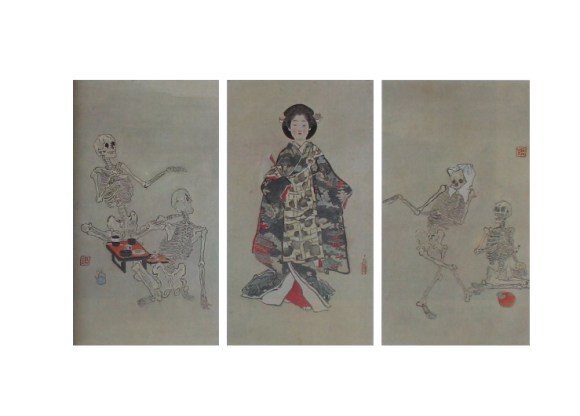
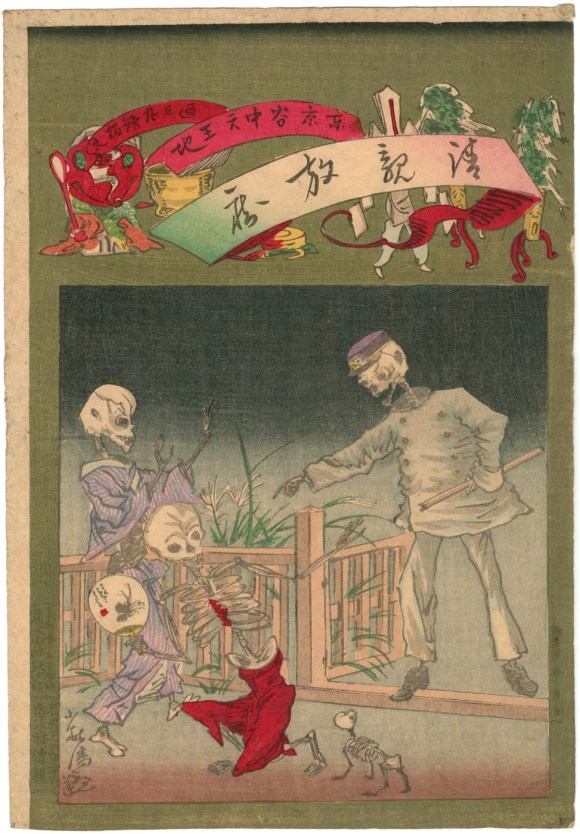
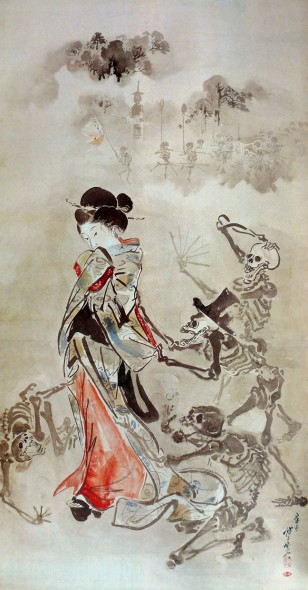
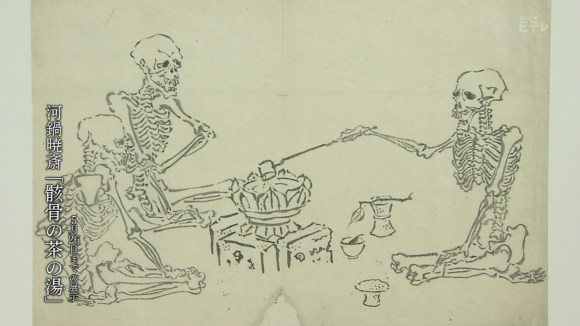

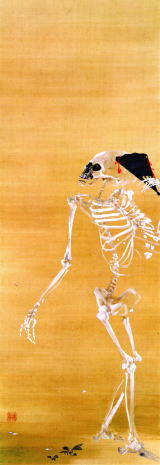
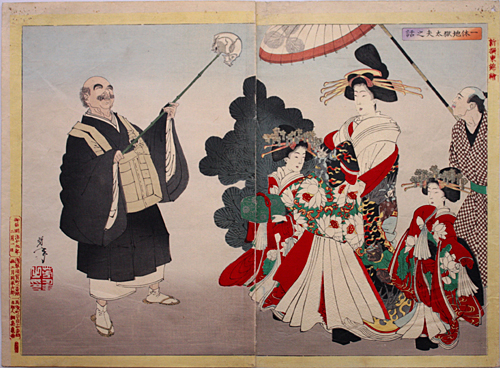
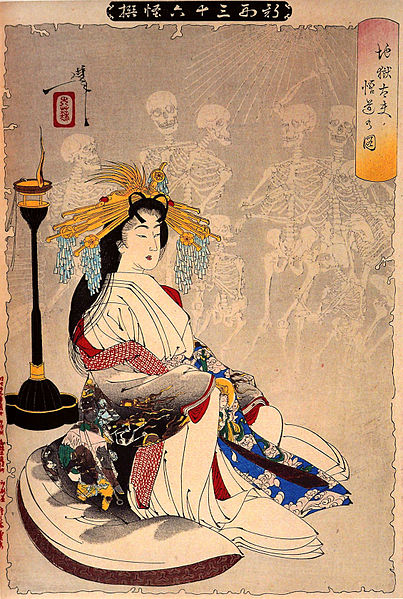
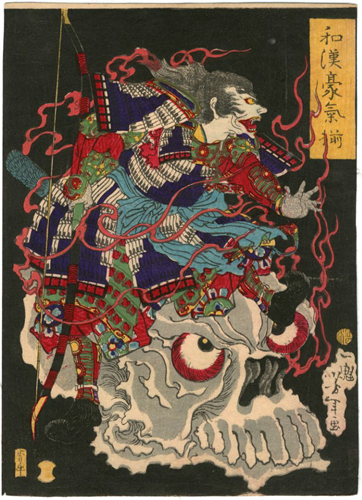
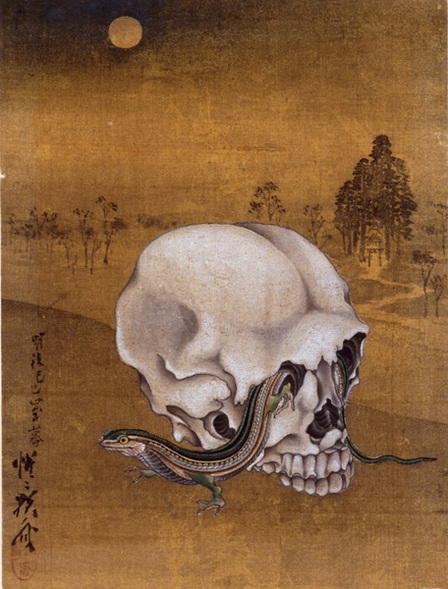
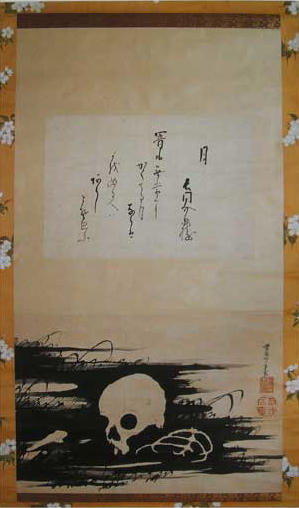
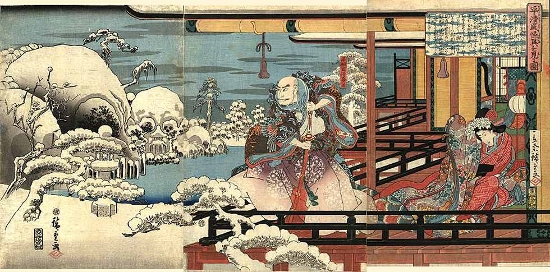
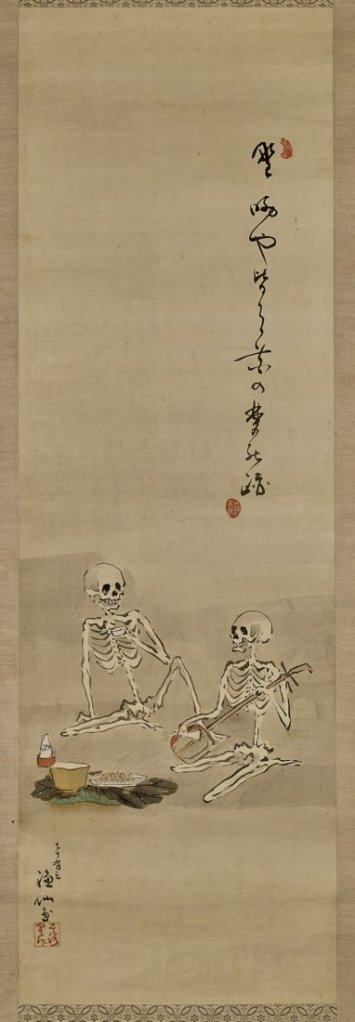

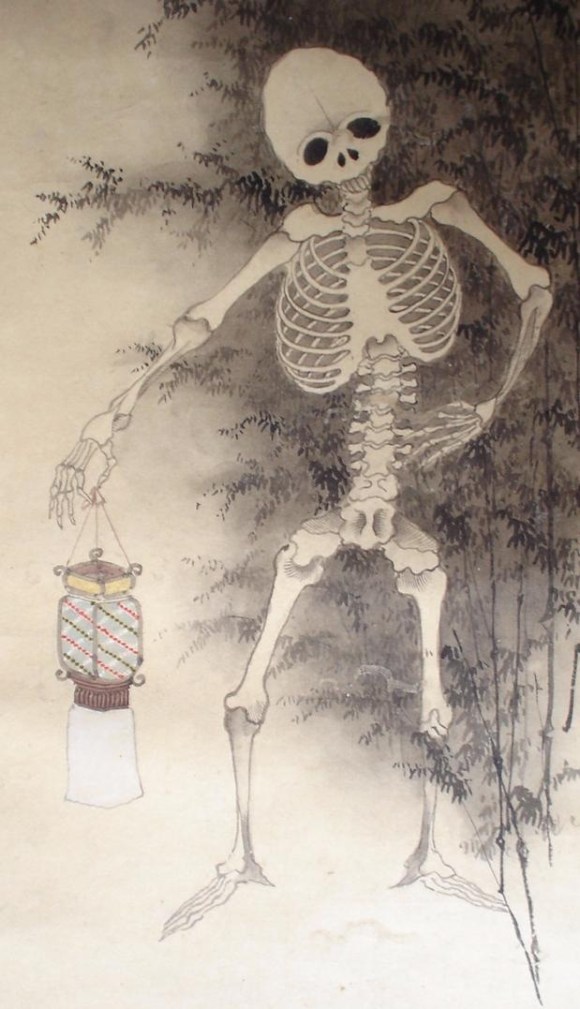
 Converse All-Stars team up with two all-stars of Japanese art for Wave, Skull ukiyo-e shoes【Pics】
Converse All-Stars team up with two all-stars of Japanese art for Wave, Skull ukiyo-e shoes【Pics】 Japanese fine art and pill bugs finally become one in BugArts Ukiyo-e series
Japanese fine art and pill bugs finally become one in BugArts Ukiyo-e series These figures for an upcoming ukiyo-e exhibit are perfect for cat-lovers and art-lovers alike!
These figures for an upcoming ukiyo-e exhibit are perfect for cat-lovers and art-lovers alike! Stunning ukiyo-e art experience floats over to Tokyo for its latest exhibition
Stunning ukiyo-e art experience floats over to Tokyo for its latest exhibition Amazing ukiyo-e art exhibit gives you the chance to step inside a woodblock print and snap photos
Amazing ukiyo-e art exhibit gives you the chance to step inside a woodblock print and snap photos Highest Starbucks in Japan set to open this spring in the Tokyo sky
Highest Starbucks in Japan set to open this spring in the Tokyo sky Saitama is home to the best strawberries in Japan that you’ve probably never even heard of
Saitama is home to the best strawberries in Japan that you’ve probably never even heard of Development of Puyo Puyo puzzle game for use in nursing homes underway
Development of Puyo Puyo puzzle game for use in nursing homes underway Family Mart’s Shibuya Cat Street shop hosts first-ever rescue cat photo exhibition for Cat Day
Family Mart’s Shibuya Cat Street shop hosts first-ever rescue cat photo exhibition for Cat Day Beautiful blue apple jam is taking the Japanese internet’s breath away!
Beautiful blue apple jam is taking the Japanese internet’s breath away! Foreign tourists in Japan will get free Shinkansen tickets to promote regional tourism
Foreign tourists in Japan will get free Shinkansen tickets to promote regional tourism 16 years’ worth of One Piece manga now free-to-read online to celebrate series 1,000th chapter
16 years’ worth of One Piece manga now free-to-read online to celebrate series 1,000th chapter Hello Kitty Shinkansen Cafe: A delicious stop on the most kawaii bullet train in Japan
Hello Kitty Shinkansen Cafe: A delicious stop on the most kawaii bullet train in Japan Here comes Japan’s newest fruit dessert sandwich: 7-Eleven’s purple Blueberry Sandwich!
Here comes Japan’s newest fruit dessert sandwich: 7-Eleven’s purple Blueberry Sandwich! Act of Japanese kindness touches one man’s heart, provides hope for elevator etiquette
Act of Japanese kindness touches one man’s heart, provides hope for elevator etiquette The 10 most annoying things foreign tourists do on Japanese trains, according to locals
The 10 most annoying things foreign tourists do on Japanese trains, according to locals Starbucks Japan releases new sakura goods and drinkware for cherry blossom season 2026
Starbucks Japan releases new sakura goods and drinkware for cherry blossom season 2026 Naruto and Converse team up for new line of shinobi sneakers[Photos]
Naruto and Converse team up for new line of shinobi sneakers[Photos] Is Sapporio’s Snow Festival awesome enough to be worth visiting even if you hate the snow? [Pics]
Is Sapporio’s Snow Festival awesome enough to be worth visiting even if you hate the snow? [Pics] Japan has trams that say “sorry” while they ride around town…but why?
Japan has trams that say “sorry” while they ride around town…but why? Tokyo Skytree turns pink for the cherry blossom season
Tokyo Skytree turns pink for the cherry blossom season Sakura Totoro is here to get spring started early with adorable pouches and plushies
Sakura Totoro is here to get spring started early with adorable pouches and plushies Poop is in full bloom at the Unko Museums for cherry blossom season
Poop is in full bloom at the Unko Museums for cherry blossom season Shibuya Station’s Hachiko Gate and Yamanote Line stairway locations change next month
Shibuya Station’s Hachiko Gate and Yamanote Line stairway locations change next month Japan’s new “Cunte” contact lenses aren’t pronounced like you’re probably thinking they are
Japan’s new “Cunte” contact lenses aren’t pronounced like you’re probably thinking they are Japan’s newest Shinkansen has no seats…or passengers [Video]
Japan’s newest Shinkansen has no seats…or passengers [Video] Foreigners accounting for over 80 percent of off-course skiers needing rescue in Japan’s Hokkaido
Foreigners accounting for over 80 percent of off-course skiers needing rescue in Japan’s Hokkaido Super-salty pizza sends six kids to the hospital in Japan, linguistics blamed
Super-salty pizza sends six kids to the hospital in Japan, linguistics blamed Starbucks Japan unveils new sakura Frappuccino for cherry blossom season 2026
Starbucks Japan unveils new sakura Frappuccino for cherry blossom season 2026 Take a trip to Japan’s Dododo Land, the most irritating place on Earth
Take a trip to Japan’s Dododo Land, the most irritating place on Earth Is China’s don’t-go-to-Japan warning affecting the lines at a popular Tokyo gyukatsu restaurant?
Is China’s don’t-go-to-Japan warning affecting the lines at a popular Tokyo gyukatsu restaurant? Survey asks foreign tourists what bothered them in Japan, more than half gave same answer
Survey asks foreign tourists what bothered them in Japan, more than half gave same answer Japan’s human washing machines will go on sale to general public, demos to be held in Tokyo
Japan’s human washing machines will go on sale to general public, demos to be held in Tokyo Starbucks Japan releases new drinkware and goods for Valentine’s Day
Starbucks Japan releases new drinkware and goods for Valentine’s Day We deeply regret going into this tunnel on our walk in the mountains of Japan
We deeply regret going into this tunnel on our walk in the mountains of Japan Studio Ghibli releases Kodama forest spirits from Princess Mononoke to light up your home
Studio Ghibli releases Kodama forest spirits from Princess Mononoke to light up your home Major Japanese hotel chain says reservations via overseas booking sites may not be valid
Major Japanese hotel chain says reservations via overseas booking sites may not be valid Put sesame oil in your coffee? Japanese maker says it’s the best way to start your day【Taste test】
Put sesame oil in your coffee? Japanese maker says it’s the best way to start your day【Taste test】 No more using real katana for tourism activities, Japan’s National Police Agency says
No more using real katana for tourism activities, Japan’s National Police Agency says